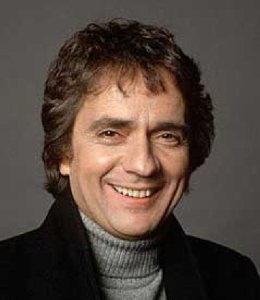 March 27, 2002 – Dudley Moore was born on April 19th 1935. As an actor, musician, comedian and composer he first came to prominence as one of the four writer-performers in Beyond the Fringe in the early 1960s and became famous as half of the popular television double-act he formed with Peter Cook.
March 27, 2002 – Dudley Moore was born on April 19th 1935. As an actor, musician, comedian and composer he first came to prominence as one of the four writer-performers in Beyond the Fringe in the early 1960s and became famous as half of the popular television double-act he formed with Peter Cook.
Dudley was bullied from an early age, and had an unhappy family life; seeking refuge from his problems he became a choirboy at the age of six and took up piano and violin. He rapidly developed into a talented pianist and organist and was playing the pipe organ at church weddings by the age of 14. He attended Dagenham County High School where he received musical tuition from a dedicated teacher, Peter Cork, who became a friend and confidant.
His musical talent won him an organ scholarship to Magdalen College, Oxford. He soon became an accomplished jazz pianist and composer. He began working with such leading musicians as John Dankworth and Cleo Laine. In 1960, he left Dankworth’s band to work on Beyond the Fringe. During the 1960s he also formed the “Dudley Moore Trio”. His early recordings included “My Blue Heaven”, “Lysie Does It”, “Poova Nova”, “Take Your Time”, “Indiana”, “Sooz Blooz”, “Bauble, Bangles and Beads”, “Sad One for George” and “Autumn Leaves”.
The trio performed regularly on British television, and had a long-running residency at Peter Cook’s London nightclub, The Establishment. In 1965. Pete was offered his own series on the BBC. Not Only… But also, when he invited Peter Cook on as a guest, their comedy partnership was so notable that it became a fixture of the series.
His fame as a comedic actor was later heightened by his success in Hollywood movies such as 10 with Bo Derek and Arthur with Liza Minelli in the late 1970s and early 1980s, respectively. He was often known as “Cuddly Dudley” or “The Sex Thimble”, a reference to his short stature and popularity with women. Pete also composed the soundtracks for films including Bedazzled, Inadmissible Evidence, Staircase and Six Weeks among others.
He passed away from pneumonia due to complications from progressive supranuclear palsy at age 66.







